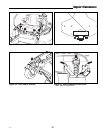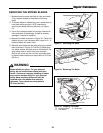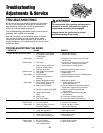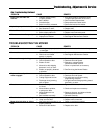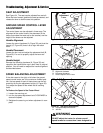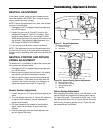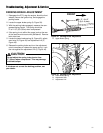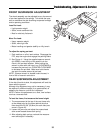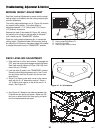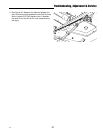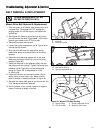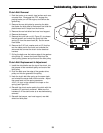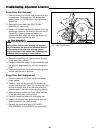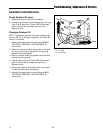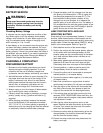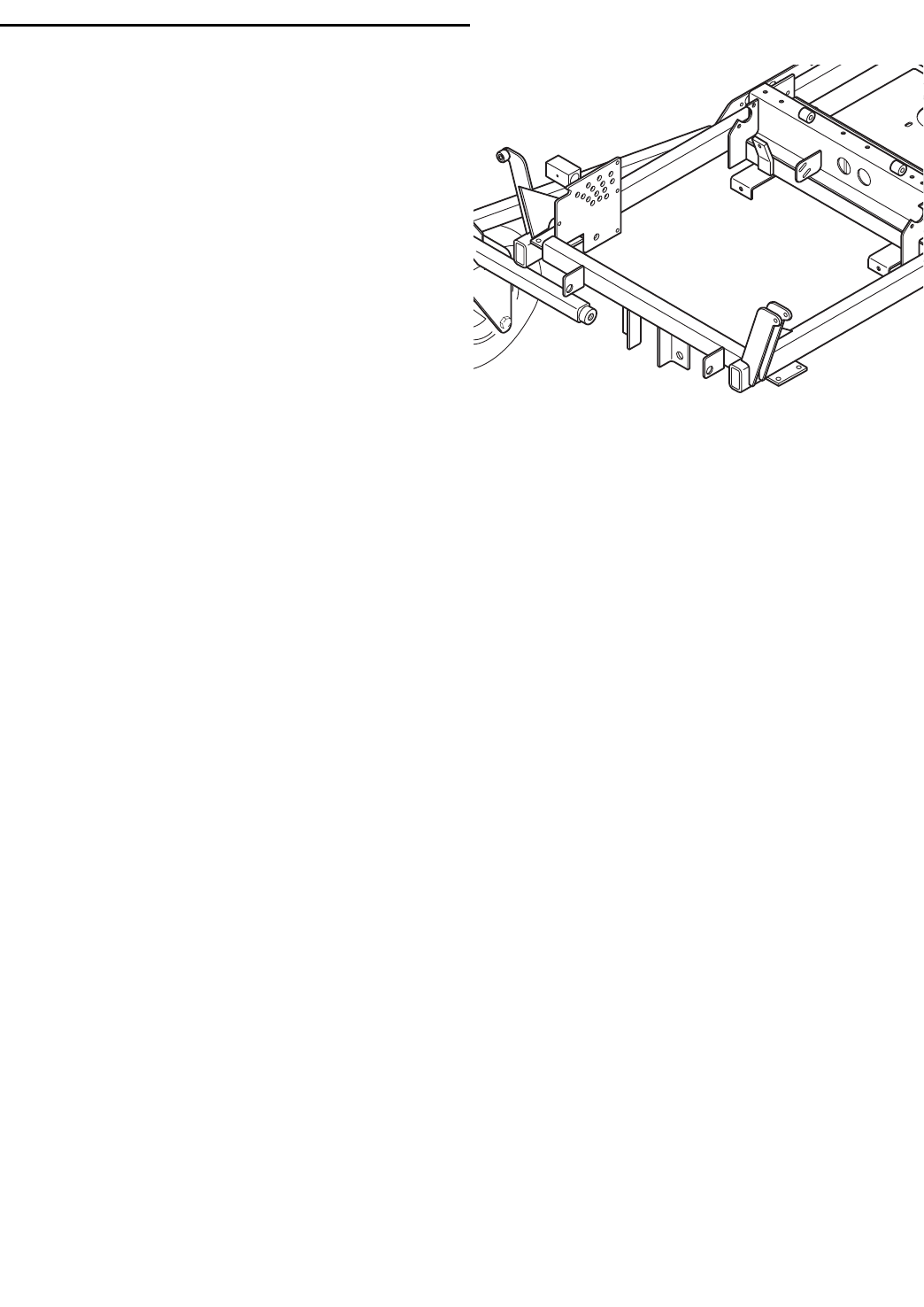
35
00
Troubleshooting, Adjustment & Service
FRONT SUSPENSION ADJUSTMENT
The shock assembly can be adjusted to vary the amount
of pre-load applied to the springs. This allows the oper-
ator to customize the ride according to operator’s weight
and/or operating conditions.
Less Pre-Load:
• Light operator weight
• Softer, more cushioned ride
• Best for relatively flat terrain
More Pre-Load:
• Heavy operator weight
• Stiffer, more rigid ride
• Better handling and greater stability on hilly terrain
To adjust the spring pre-load:
1. Park machine on a flat, level surface. Disengage the
PTO, stop the engine and engage the parking brake.
2. See Figure 41. Using the supplied spanner wrench
(p/n 22853), insert the tip of the wrench into the
notch in the pre-load adjuster. While holding the
wrench in place with one hand, turn CLOCKWISE to
increase the pre-load, turn COUNTER-CLOCKWISE
to decrease the pre-load. Make sure both shocks
are set to the same amount of pre-load.
NOTE: Spanner wrench is located under the seat, in
front of the oil reservoir and alarm.
REAR SUSPENSION ADJUSTMENT
If the rider tilts side-to-side, this adjustment will level the
frame with the ground.
Although this adjustment may not be necessary, it may
be required if additional weight (ie. a grass catcher) is
added to the frame or a drive tire is replaced.
NOTE: Perform this adjustment on a hard, level surface
such as a concrete floor.
To level the frame, first measure the frame height:
1. The measurement to the top of the rear frame rails,
at the widest point on the frame behind the drive
tires should be 22-3/8” (56,8cm) for each side (see
arrow in Figure 42).
3. Loosen the jam nuts and adjust the square-head
allen screw located above each spring.
4. After adjusting both springs, recheck the measure-
ment and adjust if necessary.



